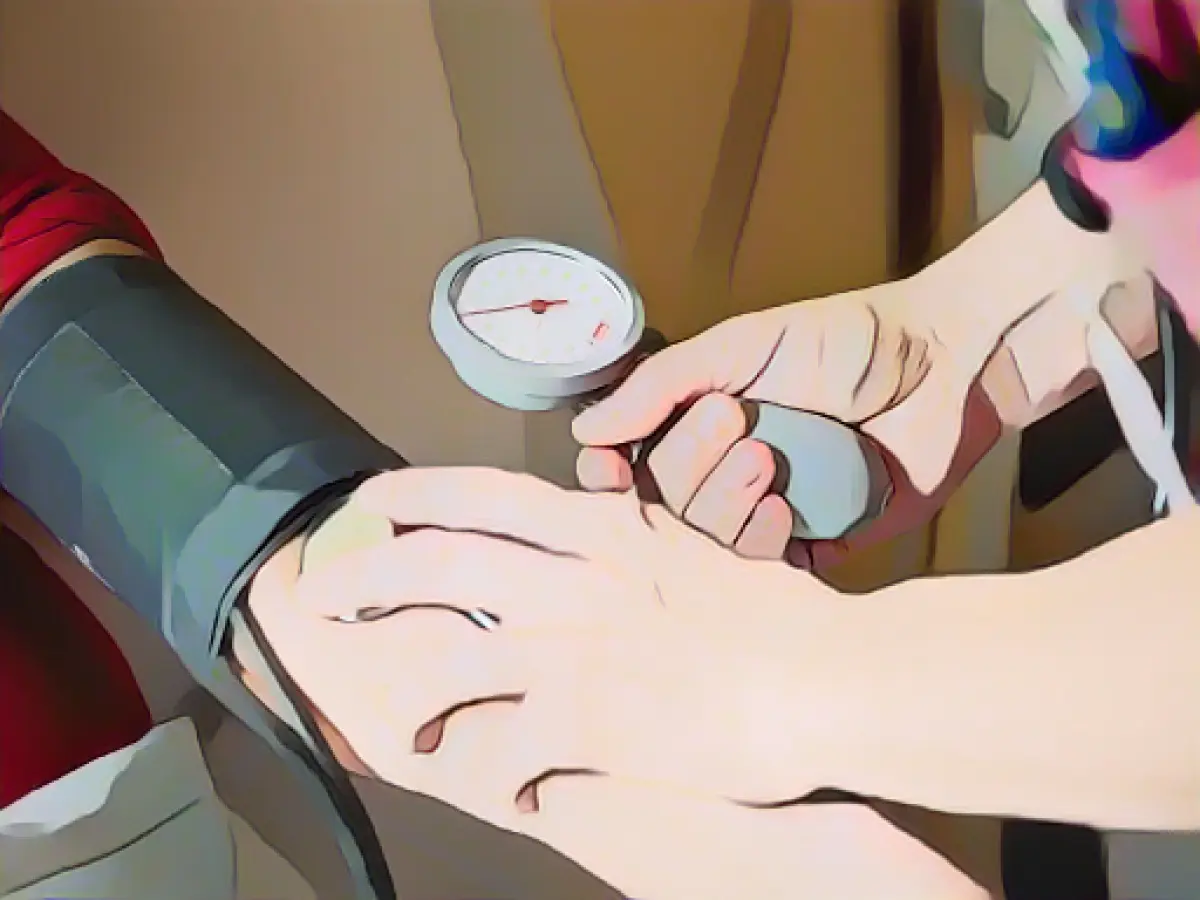Lower salt intake helps patients on antihypertensives
A low-salt diet can significantly reduce blood pressure. This even applies to people who are already taking antihypertensive medication. This is the result of an American study with 213 participants aged between 50 and 75.
The blood pressure-lowering effect (mean arterial pressure) occurred in around three quarters of the test subjects after just one week and was independent of age, gender, ethnic group, body mass index and diabetes. The team led by Norrina Allen from Northwestern University in Chicago presented their study in the journal "Jama".
According to the university, high blood pressure is the most common cause of illness and death worldwide. "High blood pressure can lead to heart failure, heart attacks and strokes because it puts additional strain on the arteries," says Allen. Although it was previously known that the consumption of table salt (sodium chloride) affects blood pressure, there were still unanswered questions about the exact link. "We didn't know whether people who were already taking blood pressure medication could actually lower their blood pressure more by reducing their sodium levels," explains Allen.
Findings from the studies
In their research, the study authors primarily determined the amount of sodium a person ingested. About a quarter of the participants had normal blood pressure, while the others had high blood pressure that was either controlled, uncontrolled or untreated. The mean (median) age was 61 years, and 65 percent of the subjects were female. The median systolic blood pressure (the higher value when measuring blood pressure) was 125, and the median daily sodium intake was 4.45 grams, which is well above the World Health Organization (WHO) recommended value of two grams of sodium (just under five grams of salt).
The researchers divided the test subjects into two groups: Participants in one group were first given a diet with 2.2 grams of sodium per day in addition to their usual salt intake. Those in the other group were only allowed to consume a total of 0.5 grams of sodium per day. After one week, the diet plan was switched.
At the end of the first week, the mean systolic blood pressure of the participants on the low-salt diet was eight millimeters of mercury lower than that of the participants on the high-salt diet. There was no statistically clear correlation with the original blood pressure value or the blood pressure status (high pressure, normal pressure). The results were similar in the second week. The blood pressure of the participants who had now consumed less sodium was on average seven millimeters of mercury lower than that of the others.
Study results not surprising
With the high-salt diet, the systolic blood pressure value rose only minimally; the researchers suspect a satiety effect here. 9.9 percent of participants reported mild side effects such as headaches, gastrointestinal symptoms and edema. Most of the participants also tolerated the low-salt diet well.
Eight percent reported mild incidents such as temporary cramps and weakness. "Just as any physical activity is better than none for most people, any sodium reduction from the usual diet is probably better than none for most people in terms of blood pressure," says Deepak Gupta of Vanderbilt University Medical Center in Nashville, lead author of the study.
For Markus van der Giet from Charité Berlin, President of the German Hypertension League since the beginning of the year, the study results come as no surprise: "In everyday clinical practice, it is known that some patients with mild hypertension can do without antihypertensive drugs if they switch to a low-salt diet". In general, however, a low-salt diet cannot replace medication, especially as the daily value of just 0.5 grams of sodium used in the study is very difficult to achieve in everyday life. Nevertheless, reducing salt is an important measure that high blood pressure patients can easily implement, emphasizes van der Giet.
The results of the study suggest that even individuals on antihypertensive medication can further lower their blood pressure by reducing their sodium intake, as seen in the blood pressure-lowering effect observed in nearly three-quarters of the test subjects. This support for the effectiveness of low-salt diets in managing blood pressure, even in the context of medication, aligns with recommendations from experts like Markus van der Giet, who advocates for salt reduction as an important measure for high blood pressure patients.
Source: www.dpa.com








